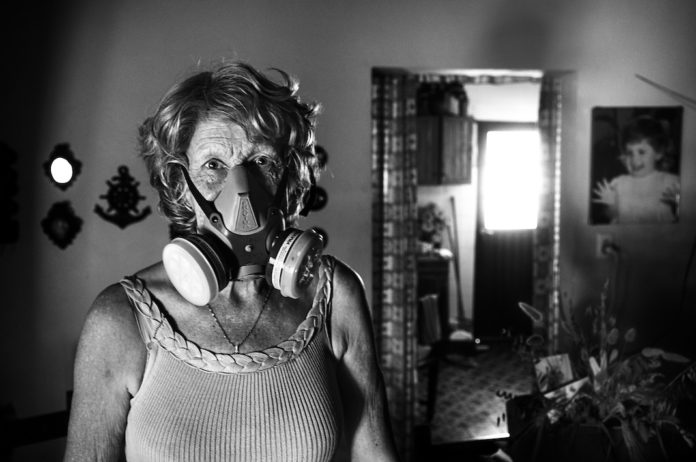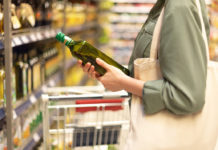
The investigation of Il Salvagente, which revealed that glyphosate is present in the body of 14 pregnant women, continues to argue. On the web, of course, where thousands of people have commented and shared our articles. But not only. Even outside Italy the news that no one can be said to be safe from this pesticide has produced reactions.
To read the Salvagente’s inquiry and react immediately was, for example, Baskut Tuncak, UN Special Rapporteur on human rights and dangerous substances and wastes. Among its many fields of interest, its office is the protection of children, workers and other groups vulnerable to the risks of exposure to toxic substances, including air pollution and other sources of contamination.
And his first comment is net: “The results are startling, and raise considerable concerns for the rights of children and women”.
Tuncak, what do you think of the analysis we have conducted and of the results showing how the glyphosate was found in pregnant women living in Rome, an area that should not be exposed to direct contact?
It lends further evidence to the conclusion that no one is untouched by pesticide exposure, including, and of grave concern, children during critical periods of development. They may be exposed through food, water, and air; through direct contact with pesticide products; or even through their mother’s womb and breast milk. The uncertainty regarding Glyphosate’s health impacts, particularly the unknown impacts on developing children, demands more precaution by States and businesses than appears to be the case.
In general, emerging research is revealing that exposure to even low levels of pesticides, for example through residues on food, may be very damaging to children’s health, disrupting their mental and physiological growth and possibly leading to a lifetime of diseases and disorders. Recent evidence suggests that pesticide exposure by pregnant mothers leads to higher risk of childhood leukaemia and other cancers, autism and respiratory illnesses. Pesticides can also pass through breast milk. This is particularly worrying, as breast milk is the only source of food for many babies and their body is not well developed to fight against hazardous chemicals.
On glyphosate there is a global fight of a very symbolic meaning. This is a cross-cutting issue which also include the relationship between science and business. The examples of different and conflicting interpretations of the studies of the effects of these substances on health are enlightening, as the cases of clamorous conflicts of interests of regulatory bodies documented by the international press.
Yes, there is a serious problem with conflicts of interest between policy makers and the pesticide industry. This is a problem at national, regional and unfortunately even the global levels. The oligopoly of the chemical industry has enormous power. The pesticide industry’s efforts to influence policymakers and regulators have obstructed reforms and paralysed global pesticide restrictions in countries and globally. Industry’s efforts are not only illustrated by efforts to ensure Glyphosate remains in use despite serious questions as to whether it causes cancer, but also efforts to dissuade Governments from restricting pesticide use to save pollinators necessary to global food production and to protect the mental health of children from chlorpyrifos.
In connection with these symbolic cases, one cannot but think of the recent document you have co-authored with Hilal Elver on pesticides. The report contains worrying figures and datas on the impact of pesticides.
Yes, the report she presented to the UN Human Rights Council in March 2017 detailed some of the startling figures of the impacts of pesticides. It provides a clear account of the global pesticide use in agriculture and its impact on human rights; the negative consequences that pesticide practices have had on human health, the environment and society, which are underreported and monitored in the shadow of a prevailing and narrow focus on “food security”; and the environmental and human rights regimes that aim to protect farm workers, consumers and vulnerable groups. However, it must be emphasized that these are an underestimation. Due to the challenge of attributing adverse effects to a single pesticide, when we are very often exposed to several simultaneously at varying levels and during different periods of sensitivity, the actual impacts can only be estimated, at best. This of course presents enormous challenges for victims who may develop diseases or disabilities due to pesticides, but have no means of identifying whom to hold accountable for what.
In the report, you deny that the use (or it should be said the abuse) of pesticides can be useful to an agriculture that serves the growing needs of food in the world. Can you explain better?
While food production has increased due to agrochemicals, the sustainability of current chemical intensive methods is more than questionable. Equally, increased food production has not succeeded in eliminating hunger worldwide. The current use of hazardous pesticides is a short-term solution that undermines the right to safe and adequate food and right to health for present and future generations.
The assertion that pesticides are necessary to achieve food security is not only inaccurate, but dangerously misleading. In principle, there is adequate food to feed the world; inequitable production and distribution systems present major blockages that prevent those in need from accessing it. Without or with minimal use of toxic chemicals, it is possible to produce healthier, nutrient-rich food, with higher yields in the longer term, without polluting and exhausting environmental resources.
The solution requires a holistic approach to the right to adequate food that includes phasing out dangerous pesticides and enforcing an effective regulatory framework grounded on a human rights approach, coupled with a transition towards sustainable agricultural practices, such as agroecology, that take into account the challenges of resource scarcity and climate change.
What should the international community do to avoid irreversible damages and reduce those that you documented?
The international community needs to create a treaty to transition away from the reliance on hazardous pesticides towards to adoption of safer alternatives. For a number of reasons, national or regional approaches to pesticide regulation will not prevent the impacts from being externalized to the most vulnerable. A global approach is necessary to incentivize the development and adoption of safer alternatives. This would, however, take some time to develop.
For the near term, the report contains a number of conclusions and a specific set of recommendations to States that would enable them to start a transition away from hazardous pesticides today, toward safer and healthier food production systems.
Developing countries that currently import pesticides banned in the country of origin, in other words from which they are manufactured and exported, should adopt reciprocal bans to eliminate this double standard and discriminatory practice. Industrialized countries should, through their development assistance, support these countries in developing and adopting safer alternatives. Some efforts are already underway in this regard, but more is needed.
Together with the SR on the right to food, we also recommend that all States should establish impartial and independent risk-assessment and registration processes for pesticides, with full disclosure requirements from the pesticide manufacturer and consider non-chemical alternatives first, and only allow chemicals to be registered where need can be demonstrated. It is also important to provide incentives for farmers to adopt agro-ecological practices, including the transfer of pesticide subsidies to subsidies that would promote the development and adoption of safer alternatives. One might also consider initiating pesticide taxes, import tariffs and pesticide-use fees.










